What does the phrase ‘sentenced to 7 years’ mean in Azerbaijan?
When it comes to Azerbaijani political prisoners, we mostly focus on the activity they were engaged in before their arrest, the charges they were convicted on and the term of imprisonment they were sentenced to.
In layman’s terms, a prison is an abstract, nasty place, where one would better avoid going to. But what do we actually know about the Azerbaijani prisons?
Herewith information about the life of Azerbaijani political prisoners and ordinary convicts, and what the statement ‘sentenced to 7 years’ really entails.

Here’s some brief information on the most prominent Azerbaijani political prisoners:
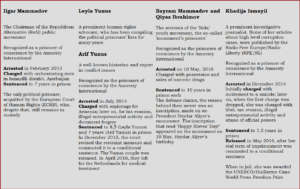
According to the latest data, there are a total of 162 political prisoners in Azerbaijan. The latest political prisoners’ list was drawn up based on the criteria set forth by the Council of Europe.
• if the detention has been imposed in violation of one of the fundamental guarantees set out in the European Convention on Human Rights and the Protocols thereof;
• if the detention has been imposed for purely political reasons without connection to any offence;
• if, for political motives, the length of the detention or its conditions are clearly out of proportion to the offence the person has been found guilty of or is suspected of;
• if, for political motives, he/she is detained in a discriminatory manner as compared to other persons;
• if the detention is the result of proceedings which were clearly unfair and appears to be connected with political motives of the authorities.
So, our guests today are:
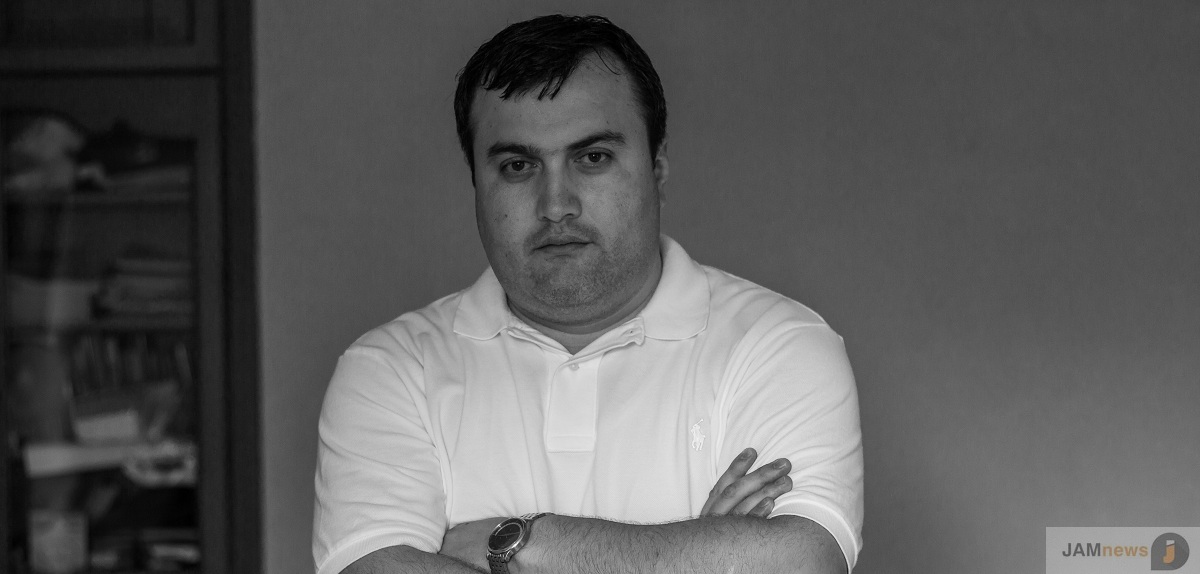
Elchin Sadiqov, a lawyer, defending the interests of many political prisoners.
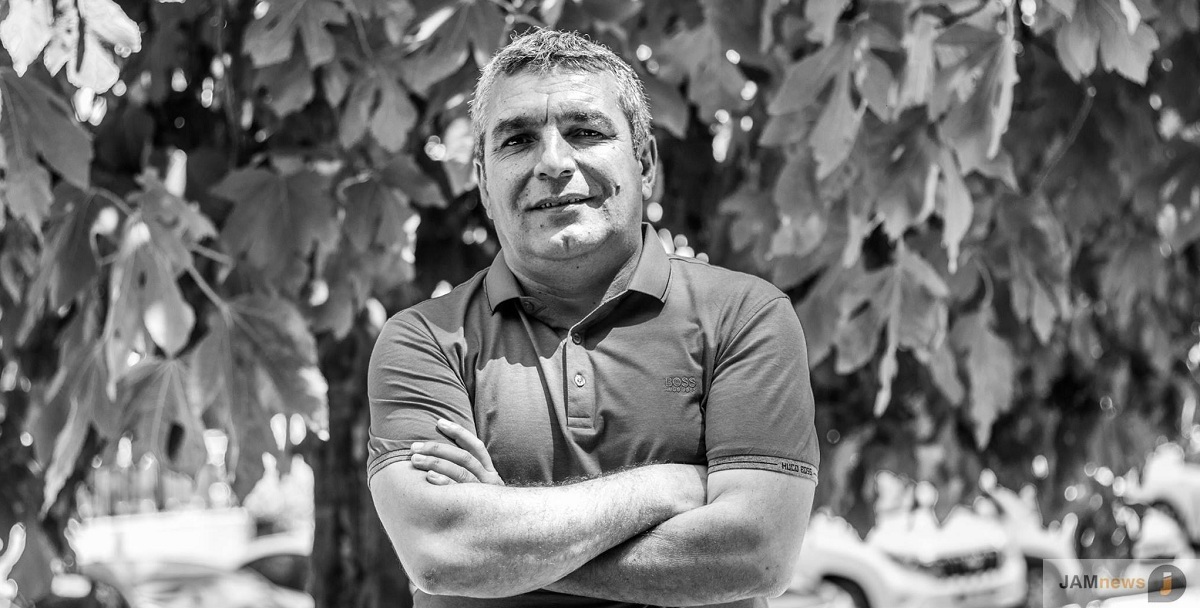
Natiq Jafarli
A well-known economist, publicist and blogger; а member of Board of the ‘Real Alternative’ (ReAl) public movement. He was arrested in 2016 for illegal entrepreneurial activity and tax evasion. He spent a month in prison.
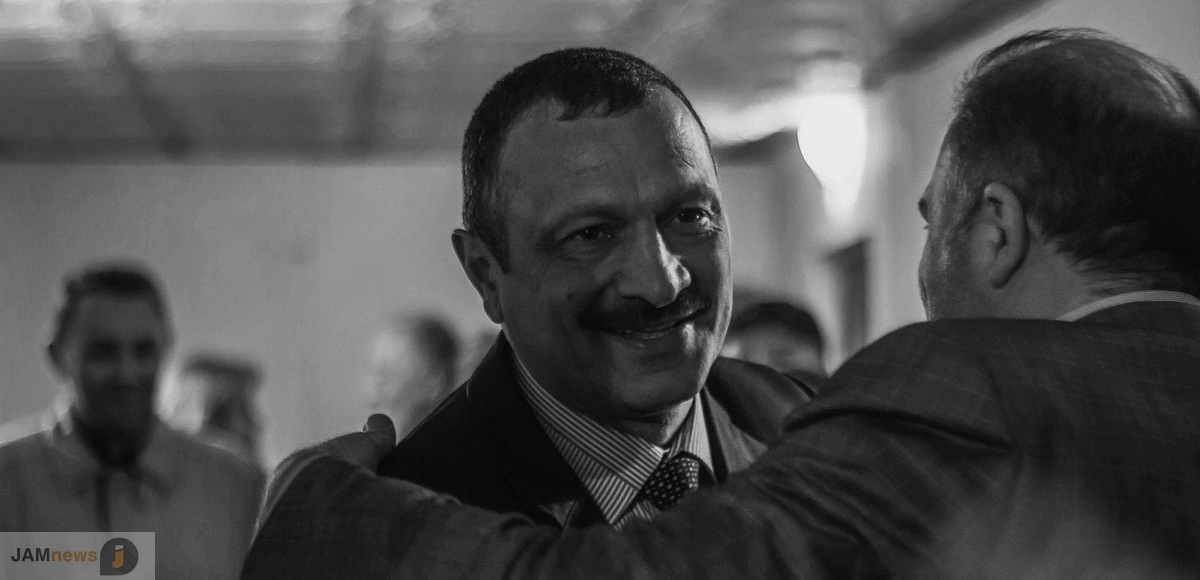
Tofiq Yaqublu
The Deputy Chair of the opposition ‘Musavat’ party. He was arrested in February 2013, and in March 2014 he was sentenced to 5 years in prison for orchestrating mass riots and use of violence against the law-enforcement officers. He, like Ilgar Mammadov, was also accused of organizing mass riots in Ismayilli district in January 2013. He was pardoned and released together with 15 other political prisoners in March 2016.
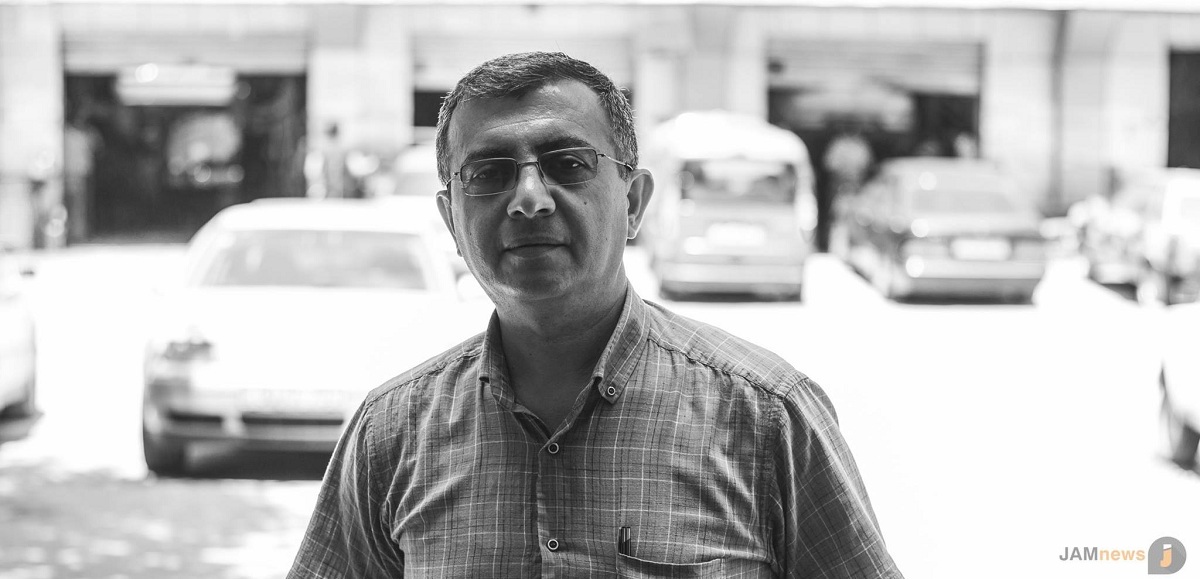
Yadigar Sadiqov
An advisor to the ‘Musavat’ party chairman, and also, a prominent journalist and blogger from Lenkoran. In 2014, he was sentenced to 6 years in prison for hooliganism. He was pardoned and released from prison in spring 2016.
‘To the prison camp!’
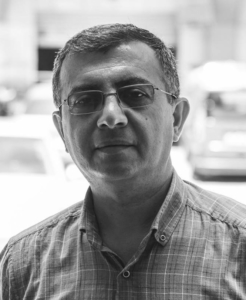
Yadigar Sadiqov: “It happened when I just arrived in the 14th penal facility. A prison warder was writing down my personal data in a notebook. He looked at me, apparently realized that I was a person with higher education, and asked: ‘Do you know Article 178 (fraud)?’ And I answered: ‘Do I look like a fraudster? It’s Article 221-I (hooliganism)!’ Then I thought that I didn’t quite resemble a hooligan either, so I added that I was a ‘political’ one.”
The pre-trial detention center is the first stage of custody. Here a person who is facing charges awaits trial; sometimes for a couple of days, sometimes for a few months. If found guilty, he/she is sent either to a standard/ high-security penal facility or a prison.
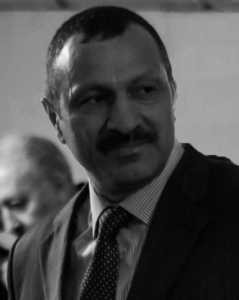
Tofiq Yaqublu: “I was brought there at night. Actually, I was prepared for an upcoming arrest. But it happened so that my daughter, Nigar, was also held in the Kurdakhani detention center. The women’s pre-trial detention facility is located in the same area, but in a different block. I leaned against the wall and thought: ‘Maybe she is standing there, behind the wall.’ Actually, it’s hard to see your children when you are in prison, but it’s even harder when you are both on the same side of the prison bars.”

There are at least 21 000 convicts in Azerbaijan (according to the Red Cross report for 2016). There are 20 penal facilities with different imprisonment regimes, 1 prison and 5 pre-trial detention centers, as well as 1 juvenile correctional center.
In the penal facilities, the inmates are allowed to walk around the territory in the daytime and they live in barracks, designed for 20-100 people. As for the prison (a famous Gobustan prison), the convicts there are kept in overcrowded cells and don’t receive any outdoor recreational time.
Detainees from Baku are, as a rule, sent to #1 pre-trial detention center in Kurdakhani settlement. In fact, it’s a prison with cells, designed for a different number of people. There isn’t any outdoor recreational area, it’s a so-called ‘cell regime.’ A ‘prison’ – that’s exactly how the detainees call this place.
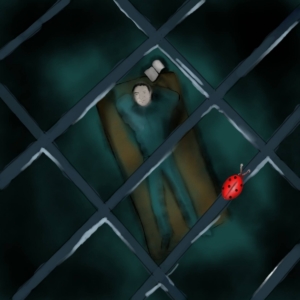
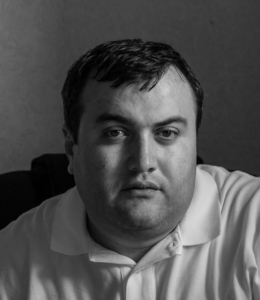
Elchin Sadiqov: “The majority of penitentiary facilities in Azerbaijan had been built long before the country joined the Council of Europe. In other words, they are built in accordance with old, Soviet standards. The penal facilities #8, #12, #13 and #14, are known for their terrible incarceration conditions. All those facilities are located in Qaradagh district, with a lot of stone quarries around. There aren’t any residential houses in this areas, since there is rock dust everywhere, which affects human lungs.”
Most of the communication systems there have seen better days, there are water supply cutoffs and the sewage system is out of order. There is a stench everywhere around and there are plenty of insects in summer.
As for the accommodation space, the European standards provide for 7 sq.m. of living space per inmate. Whereas our country still uses Soviet standards, i.e. 4 sq.m., or even less, per person. Even a deceased person is entitled to a 5 sq.m. land plot in the cemetery. Due to the lack of living space, the prison inmates take turns when sleeping.
A vent window is the only convenience in the pre-trial detention cells. The heating system is turned on 15 November.
If there are any stoves or refrigerators in cells, they have been brought by the prisoners’ relatives. But only the privileged are entitled to it, and they, in turn, may allow their cellmates to use those appliances. It must be said that political prisoners aren’t on the privileged list. They aren’t event entitled to have a radio.”

Tofiq Yaqublu: “When in Kurdakhani, I was lucky, because I was alone in the cell. Although there wasn’t anyone to meet me and pour me a cup of tea, it was quite OK for me. I stayed there for 9 months, but I kept myself busy: I read books, did some physical exercises to stay in shape. I’m a neat person, in general. So, I cleaned my cell every day: I scrubbed the floor under the bed, washed the lavatory with a toilet bowl cleaner daily.”
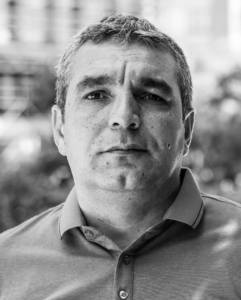
Natiq Jafarli: “A washstand was available at certain hours. Each of us was given a plastic bucket and we washed ourselves with the water that we managed to collect in that very bucket. Water was supplied at 7 p.m., for 1 hour. I was told that the water supply was better in winter, but I didn’t stay there that long. I got into prison in August and that was a bad period. There were 8 inmates in some cells and they suffered from a lack of water. And that’s the case almost everywhere; there are water supply problems in the penal facility, where Ilgar Mammadov is serving his sentence.”
There are special ‘VIP-cells’ in Kurdakhani, as well as in some other penal facilities. Those are cottages, refurbished to European standards, with ‘a rental fee’ amounting to AZN 500 ($294) per month.

Tofiq Yaqublu: “I was sent to 13th penal facility, which was known for its poor incarceration conditions. But it could be said that it was actually my choice. When convoyed from a pre-trial detention center, the convicts are told approximately where this or that person will be serving his term. So, sometimes, it’s possible to choose between the penal facilities. When I was to be convoyed from Shuvelyan (Shuvelyan pre-trial detention facility), a prison van was called, then I was taken to an office room and told: “You have a choice either to get into the prison van, go home and have a cup of tea, or go to the 13th penal facility. I realized that in order to get home I would be required to do something in exchange, so I firmly said: ‘To the prison camp!’”
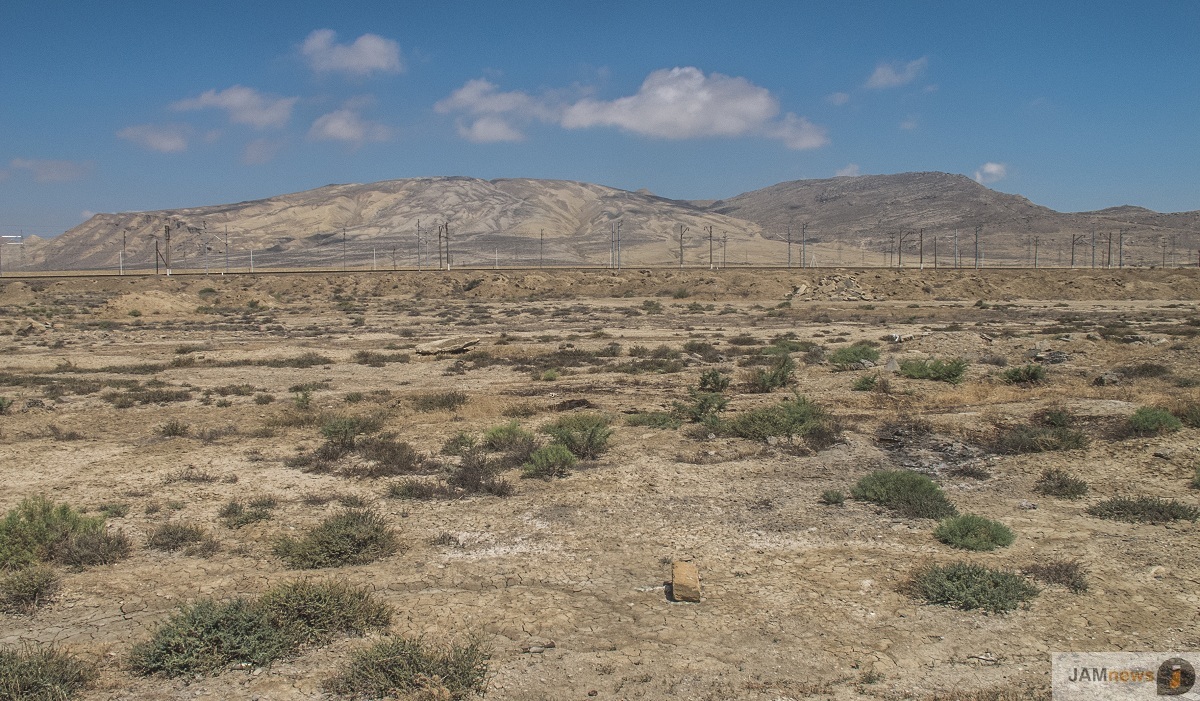
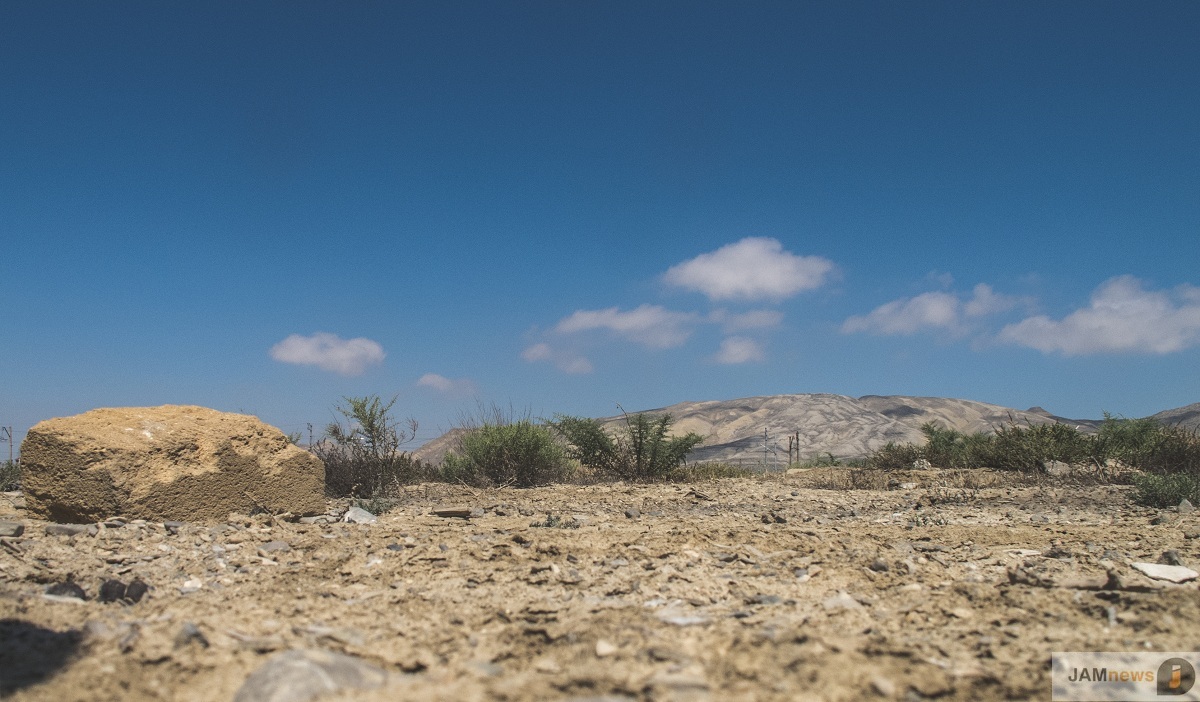

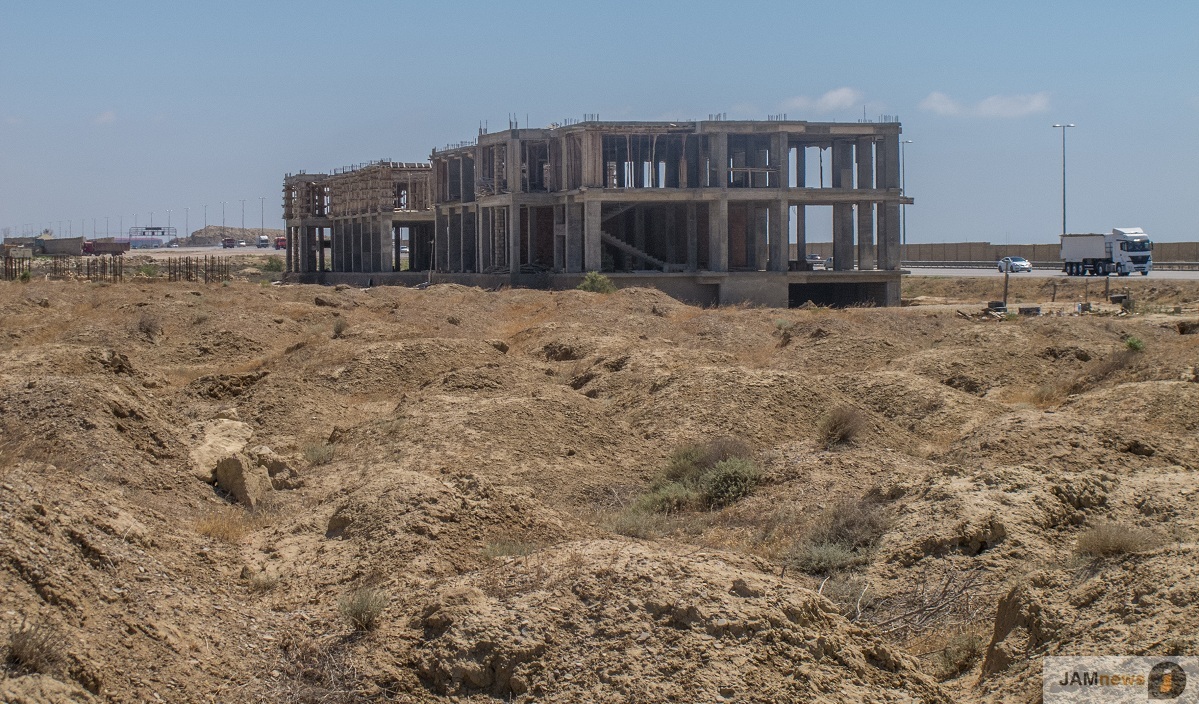
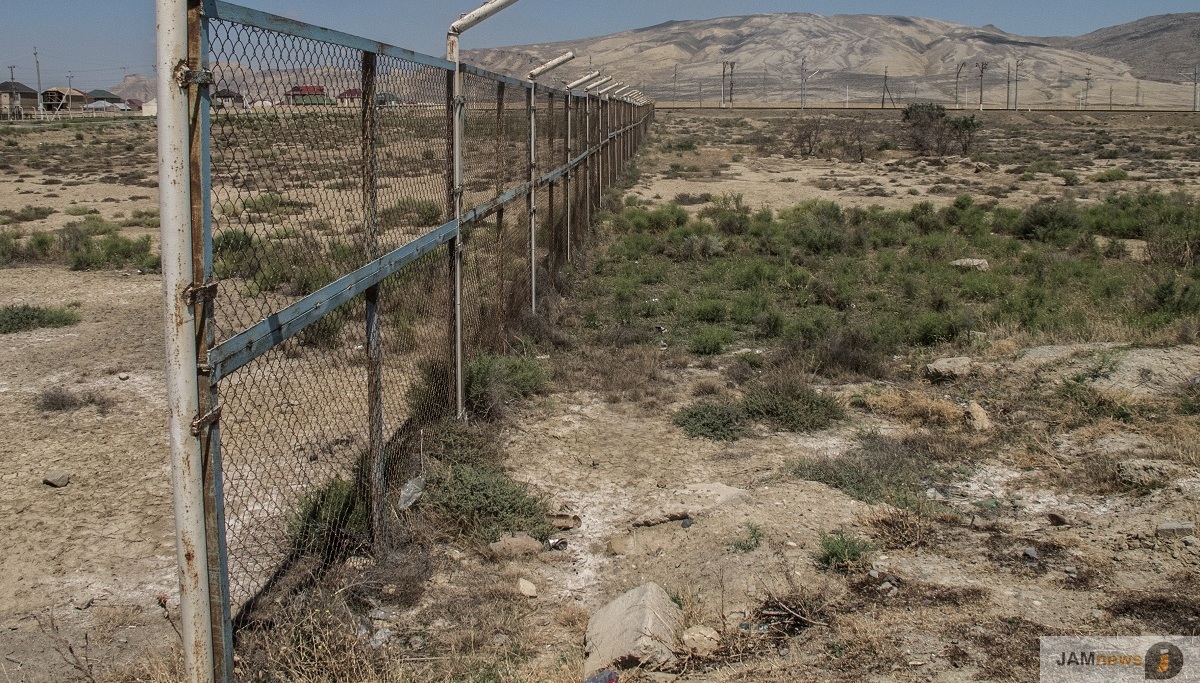
Garadagh district
Adaption
Many political prisoners say they expected their arrest. Therefore, the very idea of ending up in prison didn’t scare them much.

Yadigar Sadiqov: “Each person adapts in his own way. As for me, I managed it surprisingly easily, though at home I could hardly stay in bed when I was sick. I think, it’s all a matter of a person’s disposition. You have to come to terms with the fact that you will probably have to spend years behind bars. Then it will be much easier. The very thought of ‘when I will be freed’ makes your imprisonment intolerable.”
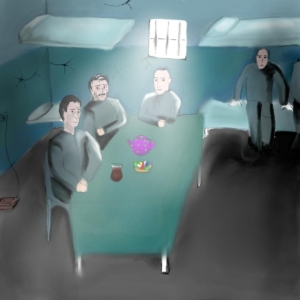

Natiq Jafarli: “During the first few days I stayed in quarantine, in the same block where a solitary confinement cell was located. Sometimes I heard the sounds of someone being beaten, someone crying, and it was a great psychological pressure.”
Food


Tofiq Yaqublu: “The Sheki pre-trial detention center was opened in the period when I was serving my sentence (in 2013). Everything was exemplary there: it was neat and tidy. After the opening, we were taken to a canteen there. I thought that the food would be as good as the facility itself. But the food there was absolutely inedible, just like everywhere else.”

Yadigar Sadiqov: “In a pre-trial detention center, the products for breakfast, i.e. granulated sugar, butter and tea, were provided once in 10 days. But the portion was so small and of such a poor quality, that it was hardly enough for 2-3 days. The dinner was more or less edible, but we almost always refused to eat supper. A prison inmate was provided one loaf of brown bread daily. As for the penal facility, the food there was so awful that I didn’t eat it at all; we managed to do without it somehow, we bought some products.
“Under the law, one shouldn’t possess any cash in prison at all. Any amount of money, either earned by a prison inmate in the penal facility or provided by his relatives, should be kept in his account. With the money in your account you can do shopping in the commissary, located in the penal facility yard. But you can spend only a certain amount on products, depending on the penal facility’s regime (standard or high-security). However, the prison administration usually turns a blind eye to the possession of money by the inmates. There aren’t any restrictions in the prison commissary either.
“The inmates mostly buy white bread, cigarettes, sugar, granulated sugar, tea and eggs. Everything is available in the commissary, be it cucumbers, tomatoes or ice-cream. Due to the monopoly, the prices there are naturally higher than in an ordinary shop.”
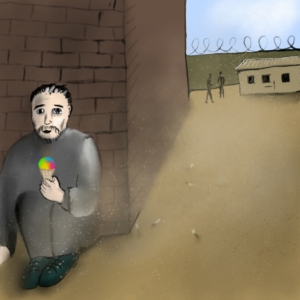

Tofiq Yaqublu: “It’s particularly hard for underprivileged prisoners. They are provided food once a week, but there isn’t enough space in the fridge to keep all the products. Naturally, they can’t eat everything at once. So, the products get spoiled, rotten, and finally are thrown away. This results in dirty and unsanitary conditions.”
Interrelations in jail
According to the political prisoners, they are treated with respect by both the cellmates and the prison ‘staff’.

Natiq Jafarli: “I was addressed in a polite manner. I was told: ‘We’ve read your works.’ Sometimes, the night shift guards would open the ‘food hatch’ and ask me to tell them about the Manat, oil and Azerbaijan’s future. Two out of three officers recognized me as they saw me on TV. The guards often wondered: ‘Muallim [‘a teacher’, a respectful address to an educated person – ed.], why have you been arrested?’
“What irritated me most was when one of the officers would say: ‘What did you need all that for? You should have kept a low profile!’
“When in prison, I learned that Rovshan Lenkoranski [Azerbaijani code-bound criminal– ed.] was murdered in Turkey. It was said that the prison inmates kept mourning him. But, generally speaking, the prison administration maintained control over the situation there. Anyone promoting some ‘underworld ideas’ was immediately placed in a solitary confinement cell.”

Tofiq Yaqublu: “I was lucky to have good cellmates in the 13th penal facility. There were 7 political prisoners serving their term of imprisonment together, including me: Ilkin Rustamzade, Anar Mammadli, Parviz Khashimli, Abdul Abilov, Faraj Kerimli and Ali Insanov. Every day we gathered for a cup of tea and communicated with each other. Every new political prisoner was met open-heartedly.
“I had normal interrelations with the rest of the prison inmates. Of course, the majority of prisoners are those with a hard lot. Some of them are rather smart and intelligent. But, in most cases, they are people who grew up in the street, who were deprived of parental care and education. You can imagine who they are. Some of them couldn’t even tell time from a clock face.
“In fact, the ‘non-political cons’ have their own concepts and concerns. It’s a serious matter when somebody’s ‘wrong’. Gambling games are played despite being officially banned. And debts arise from it. If you don’t pay in time, you can be ‘smacked down’. An amount of debt and its settlement date are set in advance. Sometimes the prisoners may ask to be placed in a solitary confinement cell just to wait it out. The time spent in the solitary confinement cell is not taken into account. Meanwhile, the family and the next-of-kin will rake up the required sum. Despite the awful food and disgusting conditions in the solitary confinement cell, many prison inmates still preferred it to possible reprisals on part of the fellow inmates. However, all the aforesaid didn’t concern us, the political prisoners.”
“The prison administration also treats us normally. They are well-aware that political prisoners will never escape even if the prison doors are left opened.
“The main thing that we and the ‘ordinary’ prisoners have in common is that they also dislike the government. They perceive the government as a hostile power, which has locked them up in prison. The prison could hardly be termed as a pleasant place, especially as we, the ‘political prisoners’ have told them much about the western penitentiary system, about the prisons and incarceration conditions there. That you stay in a cell with a TV-set, a fridge, and you go home on weekends.
“I was polite to everyone, irrespective of who was standing before me. I addressed everyone in a respectful manner, referring to each person as ‘bey’ [a respectful form to address a man – ed.] despite any impolite attitudes towards me. I never used any slang. For example, a prison slang word for a toilet is ‘north’, whereas I called it ‘a lavatory’.
“When I was in Kurdakhani, I received a message from the local criminal kingpin; half of it was written in Russian slang and the rest in Azerbaijani. I responded politely that I was unaware of the matter described there. At first the criminal kingpin was indignant, because I addressed him as ‘bey’, but having cleared out the matter he ordered not to disturb me anymore.”
Meetings
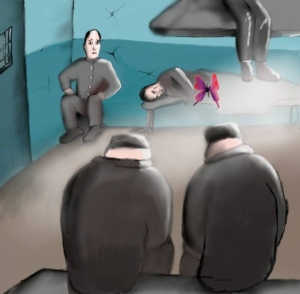

Natiq Jafarli: “My wife was allowed to visit me once a week, but my friends weren’t allowed to. I had 8 lawyers, who were visiting me every day. We just sat in an air-conditioned room, drank tea and talked about life.”
Türkian Rustamzadeh, the sister of Ilkin Rustamzadeh, a political prisoner: “The visiting area is just an ordinary room with 5-6 tables and benches. You can sit beside your relatives, and the time isn’t limited, so you can stay there until 5 p.m. The prison guards are always standing right there.”

Elchin Sadiqov: “The restrictions mostly concern visits in the police station, before a person is sent to a pre-trial detention center or a penal facility. The political prisoners have recently been facing more problems in this regard. They are not allowed to make phone calls in the first few days, whereas afterwards, they can use the phone only under supervision and they can place calls only to strictly specified numbers.
Parcels

Yadigar Sadiqov: “You are entitled to receive a parcel once a week, as prescribed by the rules. It’s not a problem to get a parcel, but it would be nice to ‘butter up’ an officer, for example, with a pack of cigarettes.”

Elchin Sadiqov: “Books and magazines are usually subjected to prison censorship. Earlier, it was allowed to bring a wide range of press, whereas now you can get only those, to which the correctional facility itself is subscribed. These are mostly state-run newspapers and magazines: ‘The Caspian’, ‘Azerbaijan’ etc. As for books, there is a list of banned literature, but it’s not officially known to anyone – it’s the prison director who decides everything.”



Penal facility #6
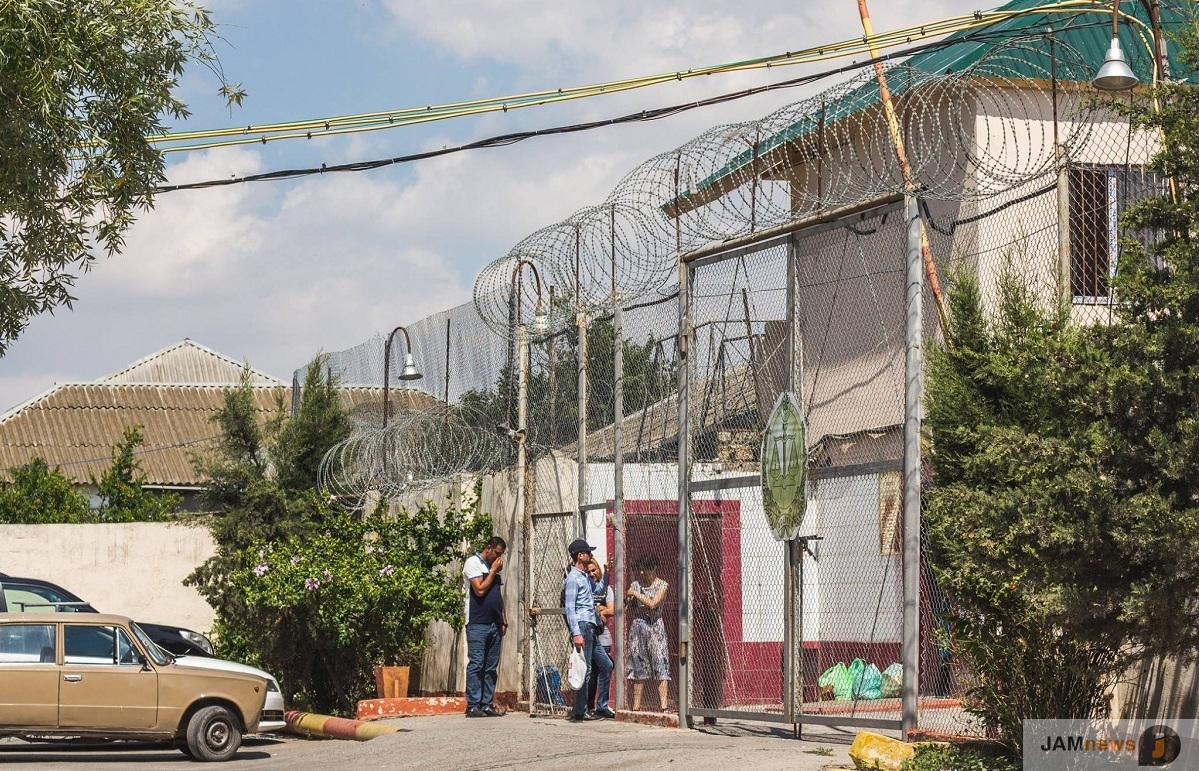
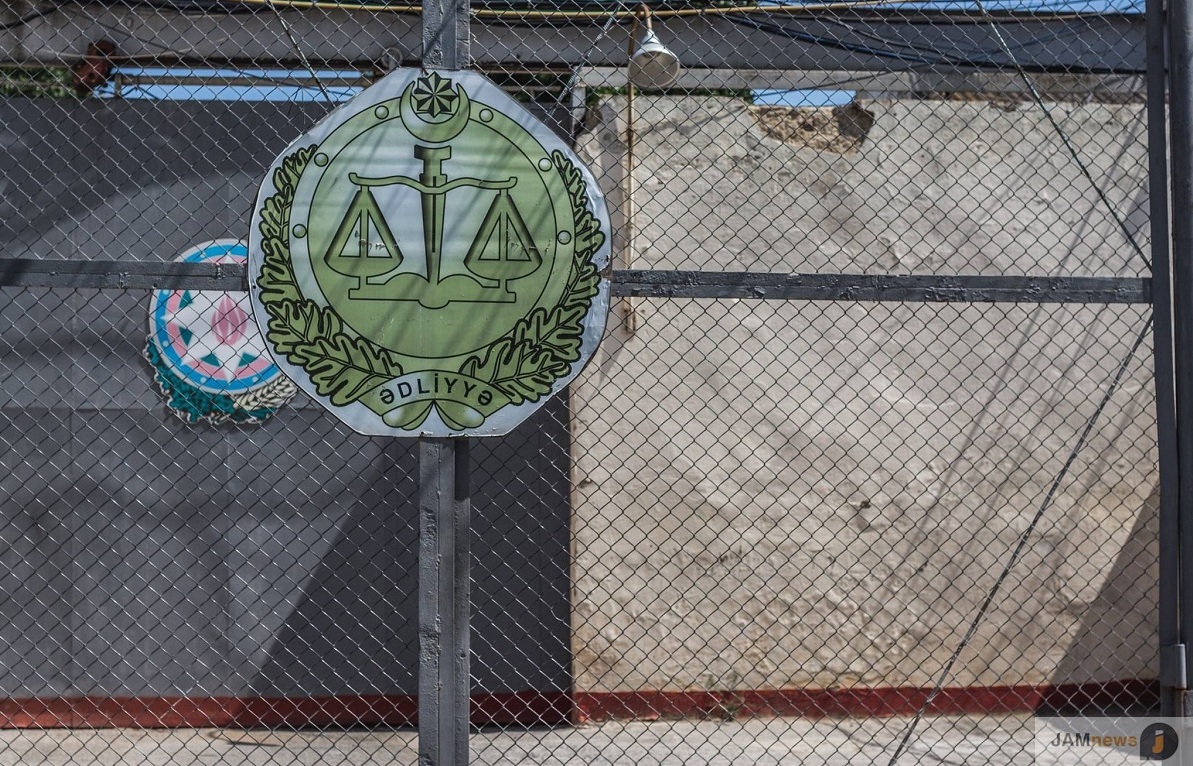
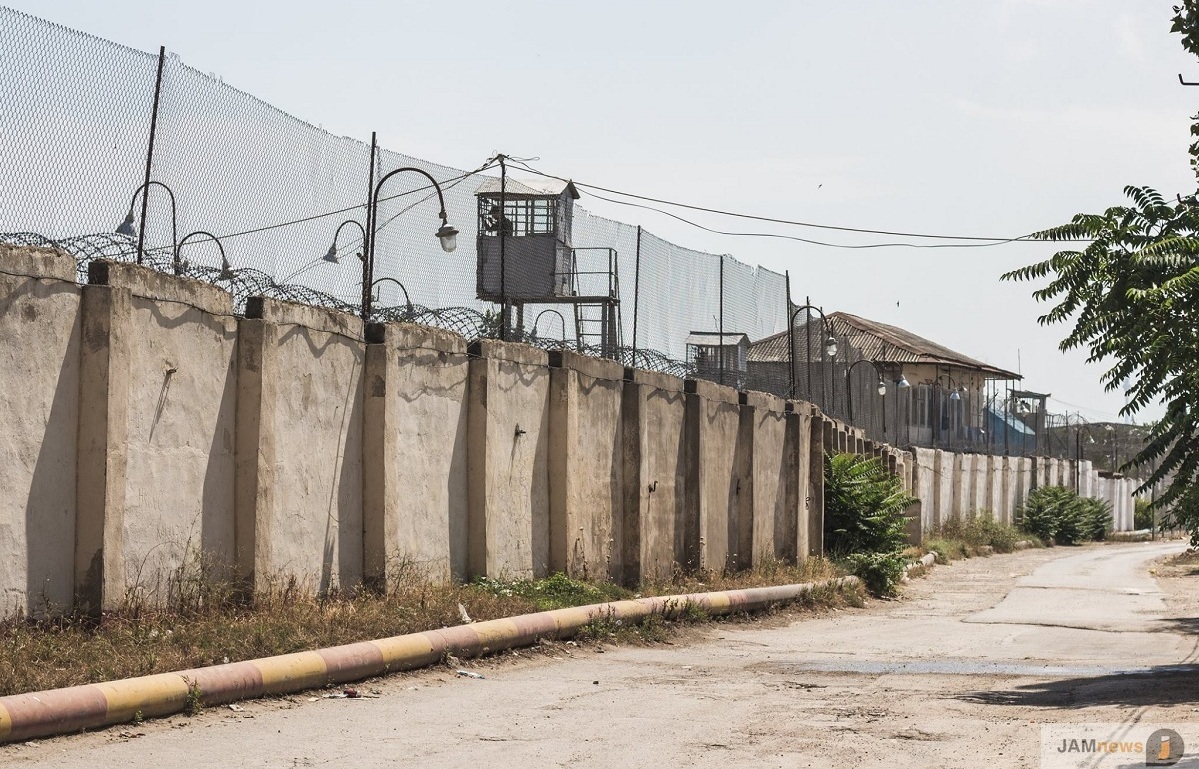
Medicine
You frequently come across Azerbaijani media reports about this or that political prisoner, who had been refused medical treatment. Political prisoners say it oftentimes happens due to the low-skilled medical personnel and a lack of medicine.

Elchin Sadiqov: “Just imagine, there are absolutely no means for resuscitation of a person with a heart attack in prison. The medical unit has limited capacities, it offers diagnosis only based on visual examination. Citramonum (for headaches -ed) and aspirin are the only medicines that could be found in the medicine kit. The medical unit lacks normal sanitary conditions. For example, if there are tuberculosis patients, they are kept together with the rest of patients. You may be taken to hospital only if you are in a really critical condition. About 50-70% of prisoners die annually due to diseases and the lack of normal treatment.”

Yadigar Sadiqov: “It was a stroke of luck that I didn’t suffer any serious diseases. Yet, it’s possible to consult a physician both in the prison and in the penal facility. It’s even easier to do it in the penal facility. Although the medical service there is far from perfect, but at least it’s better than I expected.”

Tofiq Yaqublu: “The beds in the barracks are arranged in two decks, like in a compartment, and they are very close to each other. It’s almost impossible to turn around and take a comfortable pose. You often sleep literally nose to nose with a neighbor. There was a young guy, who slept next to me. As far as I remember, his name was Farman. So, he suffered from tuberculosis and hepatitis.
“In fairness, it must be said that tuberculosis patients are treated as is right and proper, though they aren’t isolated. They get tested, undergo fluorography and are given medicine regularly. They are sent to a tuberculosis dispensary once a year. The inmates, who know that they will be sent there, suffer in advance, since there are very tough conditions and one may even be beaten for violation of the rules there. The healthy ones are sometimes sent there for a punishment.”
What to do

Natiq Jafarli: “After being allocated a cell, I happened to share the two-person cell with a young guy, who was illiterate. I was teaching him 2 hours a day. It was he who asked me for that. He was always surprised that I was reading books all the time. I was brought 3-4 books a week. I read everything, be it fiction or biographies. To put it short, I read so much that I had nothing left to read in my free time.”
There are two cafeterias in the prison, an ordinary and a ‘trendy’ one. The ordinary one was organized by the convicts themselves and they now work there. There is a TV-set, but it shows only local TV channels.
Meanwhile, in the ‘trendy’ cafeteria, you just pay AZN 10 and watch a movie on a large LCD-screen, and you are also served a pot of tea with biscuits.
Natiq Jafarli: “I felt comfortable in prison. There was an old, Soviet-type radio, and I listened to jazz and, regrettably, to some gangster songs – whatever was available. As for TV, I mostly watched sports programs, football and news.”
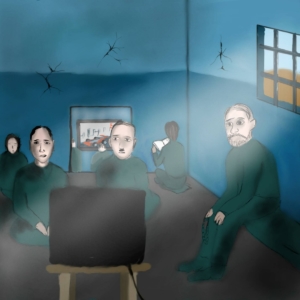
Violence

Elchin Sadiqov: “Torture and physical abuse mostly take place through the police. Such cases rarely occur in the penitentiary system. Though, sometimes, one could be treated badly, rudely or sent to a solitary confinement cell for no particular reason.
As for forensic examination, it’s less effective as it is conducted a month after a convict is physically abused. All wounds have usually healed by then, and the examination, as a rule, is unlikely to prove anything.”

Natiq Jafarli: “At first, Ilgar Mammadov was physically abused. Then he started experiencing back pain. He wasn’t provided with any quality medical care, even though the pain was severe. The only thing they eventually did after wrangling a lot, was bring a wooden board and placed it on an old, Soviet-type bowed bed.
“He was sent to a solitary confinement cell twice, the first time for three days and the next time – for a day. However, after the reshuffle in the prison’s administration, he was never physically abused again.”
Faraj Kerimli – Deputy Chair of the opposition Musavat party. He was arrested in July 2014 for possession and distribution of narcotics. He was sentenced to 6.5 years in prison. He received amnesty in October 2016.

Yadigar Sadiqov: “It’s very hard for convicts to find justice. As a rule, the convicts’ written correspondence is subjected to strict control. Even if he manages to somehow communicate his complaint to certain structures, the state services will cover each other up. In any case, the convicts aren’t inclined to complain, as it might further aggravate their situation.”
Election

Tofiq Yaqublu: “You are forced into a polling booth and given a ready-made ballot paper. You should just tick the only acceptable candidate, which will be checked. If you either refuse to vote or tick for the candidate, you will either be beaten or sent to a solitary confinement cell.”


















